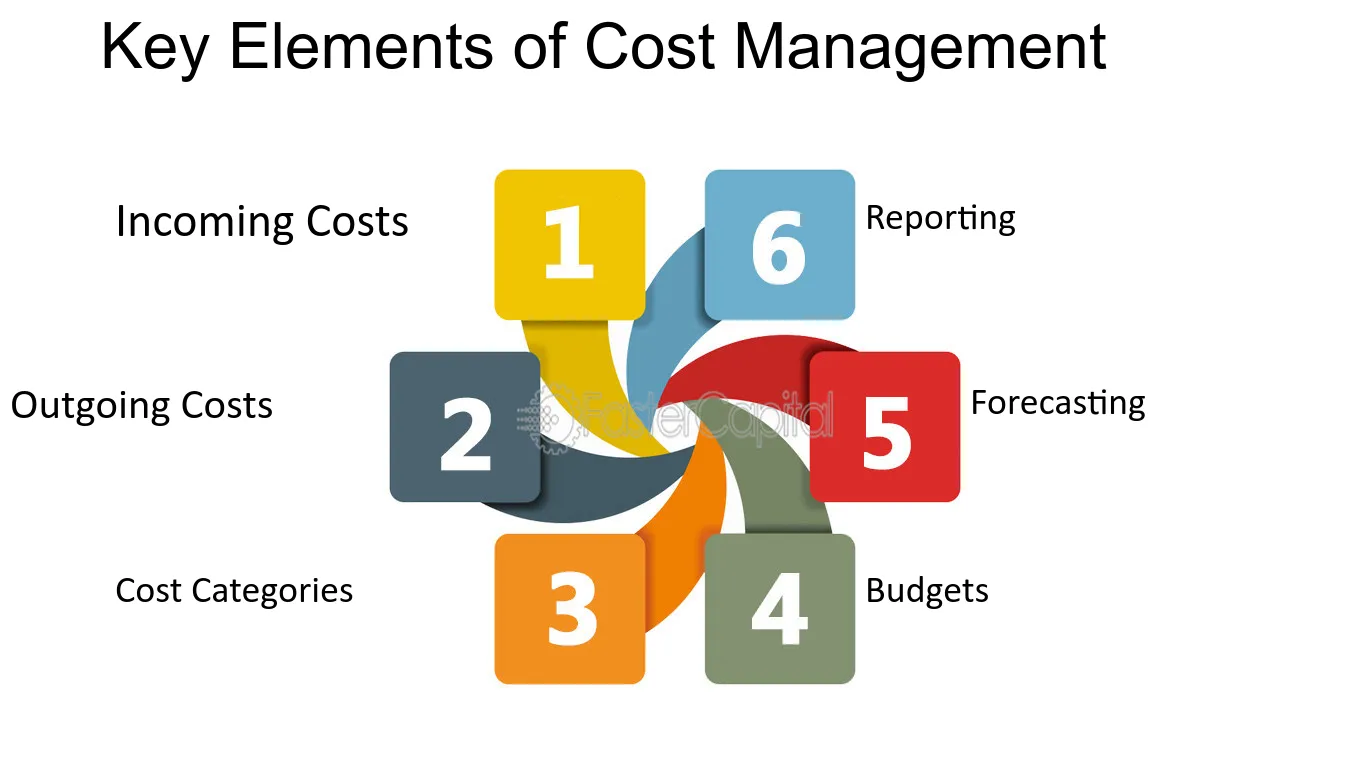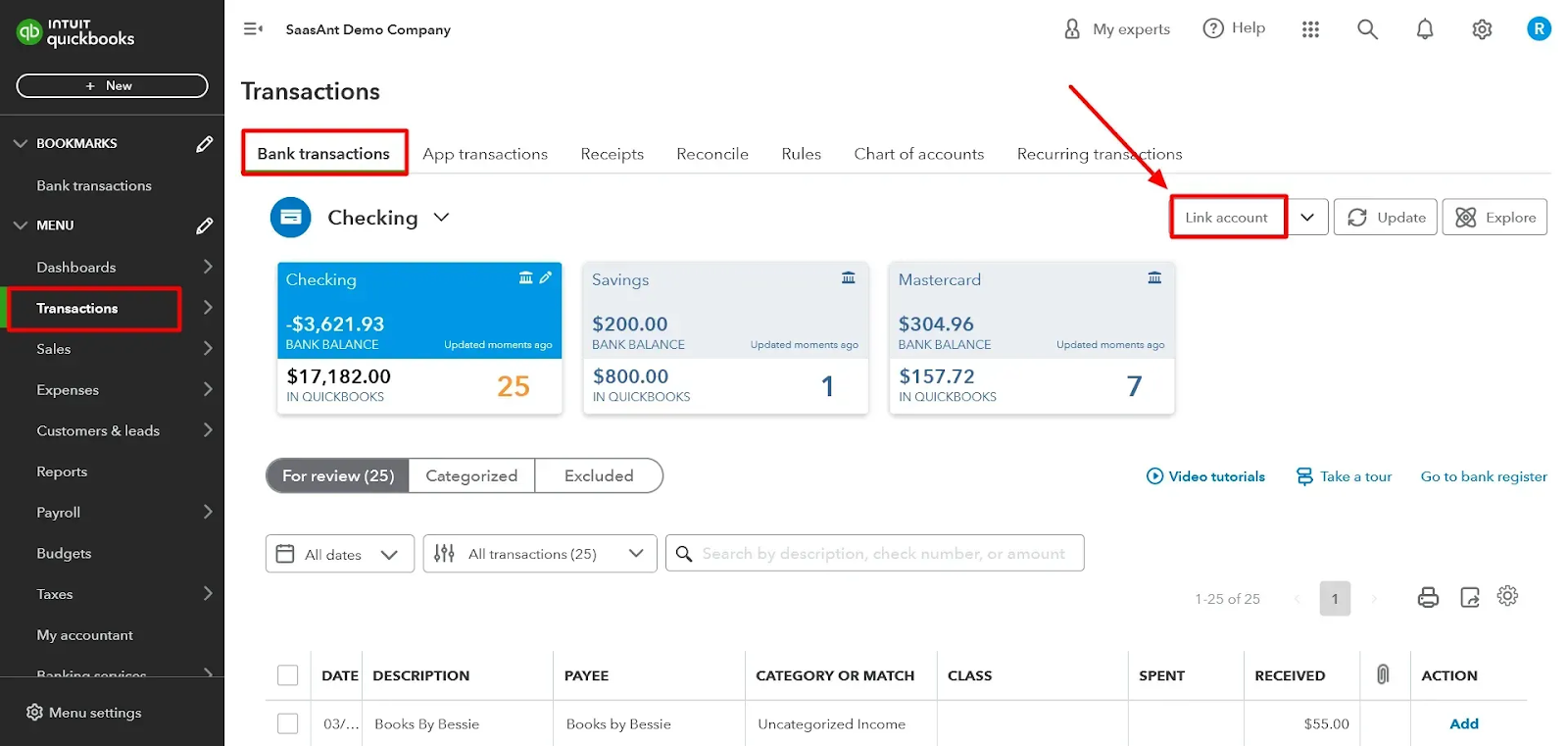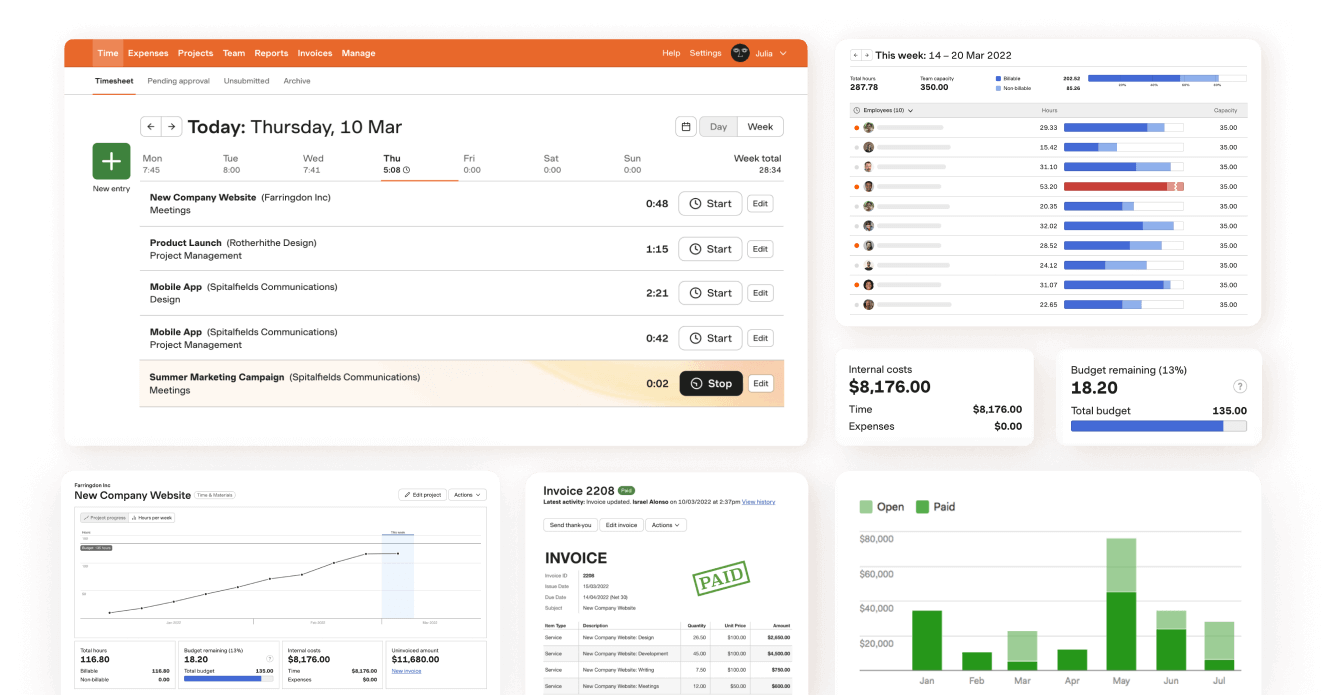Effective project cost management hinges on meticulous cost estimation, rigorous controls, and the ability to identify cost-saving opportunities. A critical component of this process is cost tracking, which enables project managers to monitor expenses and detect any deviations from the planned budget early on. By staying within budget limits, organizations can avoid cost overruns and maintain financial stability.
Introduction to cost tracking
Cost tracking is a fundamental aspect of project cost management. It empowers businesses to make informed financial decisions by closely monitoring project expenses. The process begins with accurate cost estimation, identifying potential project costs. The success of any cost management program relies heavily on the precision of these estimates.
The role of cost-tracking tools
Sophisticated cost-tracking tools play a pivotal role in project costing and identifying cost-saving opportunities. These tools allow precise calculation of project expenses, ensuring accurate budgeting. Additionally, cost tracking aids in budget management by promptly identifying any deviations from the planned costs. By preventing cost overruns, organizations can optimize their budgeting process and execute projects more efficiently.
Why cost tracking is essential for agencies
Cost tracking is essential for agencies to ensure cost-effective operations and budget management. Through effective cost estimation and ongoing project cost management, agencies can identify cost variances early, implement cost controls and prevent cost overrun. These measures lead to cost-saving opportunities and contribute to a better budgeting process.
Utilization of cost-tracking tools also proves beneficial in managing project expenses and refining the overall project costing. With a detailed project budget, agencies can make smarter decisions and ultimately enhance the profitability and sustainability of their operations.
The role of cost tracking in financial management
Cost tracking plays a crucial role in financial management, specifically in project cost management. It utilises cost-tracking tools to ensure accurate cost estimation and aid in budget management. By keeping track of project expenses, cost overrun can be prevented, leading to cost-effective completion of tasks.
Moreover, cost tracking allows identification of cost-saving opportunities, which is significant in the budgeting process. It helps in understanding cost variances and rectifying them for better budget estimates. Thus, it is an integral part of effective project costing, fostering a project budget that drives business success.
Benefits of accurate cost tracking
Accurate cost tracking offers numerous benefits, primarily in the realms of cost management, project cost management, and budget management. It enables effective cost estimation and efficient monitoring of project expenses. This way, it helps reduce the risk of cost overrun due to potential cost variances and promotes cost-effective execution of projects.
By identifying cost-saving opportunities, it can significantly improve a company's financial health. Additionally, the use of cost-tracking tools can streamline the budgeting process and refine budget estimates. Accurate cost tracking thus plays a pivotal role in overall project costing, making it an invaluable strategy in business management.
Key elements of cost tracking

Cost tracking stands as a pivotal component of project cost management. It requires the strategic application of cost controls, precise cost estimation, and the judicious employment of cost-tracking tools to oversee project expenditures. This methodology guarantees an economical execution, empowering organizations to pinpoint and capitalize on cost-saving opportunities.
Moreover, cost tracking is instrumental in circumventing cost overruns. It encompasses the validation of cost discrepancies, the refinement of budget forecasts, and the assurance of compliance with the project budget throughout the budgeting phase. Thus, it occupies a central place in adept budget management.
Direct costs and indirect costs
Direct and indirect costs are essential to project cost management and estimation. Direct costs are expenses directly assignable to project activities, such as team wages, material outlays, and travel expenditures linked to the project. Conversely, indirect costs encompass overheads not specifically linked to a particular project, like utilities, administrative expenses, and asset depreciation.
To prevent budgetary excesses, effective cost management must account for both direct and indirect costs. Techniques like deploying cost-tracking tools and regular scrutiny of cost deviations can facilitate stringent cost governance. Additionally, thorough budget administration can unearth cost-saving prospects throughout the budgeting cycle, ensuring an efficient project delivery.
Fixed costs and variable costs
Navigating the interplay between fixed and variable costs is essential in project cost management. Fixed costs are unchanging, irrespective of project magnitude, including expenses like staff remuneration, premises rent, and utility charges. Variable costs, however, vary with the project’s scope of work, such as material costs, equipment rental fees, and supplementary labor charges.
Identifying these costs during the estimation phase and uncovering cost-saving measures is critical. Cost-tracking tools are invaluable in this regard, aiding in budget prognostication and cost regulation to avert financial overreach.
Actual costs and estimated costs
Project expenditures are integral to any enterprise, encompassing cost management, project cost oversight, and fiscal administration. Precise cost prediction is crucial in the budgeting process to sidestep financial overrun and identify potential cost efficiencies. This typically involves forecasting both tangible costs and projected expenses, comparing them to highlight notable cost differences.
Effective project costing entails prompt monitoring of project outlays and systematic implementation of cost constraints. Utilizing sophisticated cost-tracking instruments can provide a transparent view of financial allocations, thereby ensuring an economical operation in alignment with the project budget.
Best practices for effective cost tracking
Effective cost tracking starts with accurate cost estimation. Utilizing cost-tracking tools can aid in keeping track of project expenses and identifying cost-saving opportunities. It's essential in maintaining cost management and preventing cost overrun.
The budgeting process should include frequent revisions of budget estimates to reflect actual costs, aiding in better project costing and project cost management. Monitoring cost variances is integral to this process.
Lastly, proper budget management includes recording every expense accurately and promptly, implementing cost controls, and continuously looking for cost-effective solutions throughout the project lifecycle.
Establishing a cost tracking system
Establishing an effective cost tracking system is crucial in project cost management. This system helps in cost estimation and tracking project expenses. Key elements include cost controls to monitor cost overrun and find cost-saving opportunities.
Project costing involves a range of cost-tracking tools for accurate budget management. During the budgeting process, these tools enable the creation of reliable budget estimates. Moreover, they help in identifying the cost variances in the project budget, which aids in making cost-effective decisions.
Regular monitoring and updating
Efficient project cost management requires regular monitoring and updating. Keeping a close eye on project expenses and cost variances helps maintain cost-effective procedures and reveal cost-saving opportunities. Implementing the use of cost-tracking tools strengthens these efforts, making the budgeting process more manageable.
Moreover, accurate cost estimation plays an influential role in effective budget management. It prevents cost overrun and ensures the project budget is adhered to. The dynamic nature of projects implies that both budget estimates and cost controls must be continually reviewed and updated.
Training staff on cost tracking
Effective training for your staff on project cost management is critical to preventing cost overrun. It involves educating them on various topics like cost estimation, cost controls, as well as use of cost-tracking tools. This ensures that they are equipped to manage project expenses and identify cost-saving opportunities.
Teaching your team about budget management forms a part of this training. They should be able to create accurate budget estimates, understand the budgeting process and manage the project budget effectively.
Training also entails teaching staff about detecting and addressing cost variances. With this knowledge, they can identify deviations from the project costing plan promptly and take corrective measures.
Common challenges in cost tracking and how to overcome them
Notably, one of the most common challenges in cost tracking is cost overrun, usually due to inaccuracies in cost estimation and budget estimates. Moreover, inconsistencies in budget management and the budgeting process can also affect the overall project expenses. Additionally, failure to take advantage of cost-saving opportunities can lead to less cost-effective projects.
To overcome these challenges, businesses can incorporate cost controls, and cost management practices to identify and tackle cost variances in a timely manner. Project cost management also goes hand in hand with the effective use of cost-tracking tools and sound project costing strategies for accurate project budget forecasts.
Dealing with inaccurate data
Managing inaccuracies in project data is critical for effective project cost management. Cost overrun can occur when there are errors in cost estimation, making it important to leverage cost-tracking tools for accurate project expenses.
For cost-effective measures, identifying cost-saving opportunities helps to mitigate excessive project costing. Furthermore, regular monitoring of cost variances assists in optimal budget management.
In the budgeting process, possible inaccuracies in budget estimates need careful consideration to avoid detrimental impacts on the overall project budget.
Managing complex cost structures
Effective project cost management encompasses robust cost estimation, vigilant cost controls, and diligent tracking of project expenses. This not only guards against cost overrun but also presents cost-saving opportunities. Adopting comprehensive project costing techniques enables businesses to manage complex cost structures effectively.
Further, employing advanced cost-tracking tools facilitates better budget management, helping to keep expenditure within budget estimates. The entire budgeting process becomes streamlined, mitigating cost variances and ensuring a cost-effective project budget.
Addressing time constraints
The task of project cost management can be hindered by time constraints. Efficient budget management involves careful cost estimation and tracking project expenses. Addressing these time limitations requires implementing cost-effective strategies and making the most of cost-saving opportunities.
Advanced cost-tracking tools can expedite the cost controls and budgeting process, minimizing the likelihood of a cost overrun. Tools that aid in the calculation of cost variances give a precise gauge of the project costing, aiding in detecting discrepancies promptly.
This, in turn, allows for more accurate budget estimates, ensuring a more secure project budget and better overall cost management.
Top cost tracking tools for agencies
As a business, keeping track of costs, especially labor costs, is essential to your bottom line. You may find that digital agency time tracking software can offer a comprehensive approach to this. It can lead to more efficient operations and ultimately, significant cost savings.
Effective cost management plays an essential role in agency operations. Among the top cost-tracking tools used by agencies include QuickBooks, Zoho Expense, and Wrike. These tools provide essential cost management features like cost estimation, project expenses tracking, and project cost management. They are also essential for identifying cost-saving opportunities and managing cost overruns.
These tools not only aid in the management and reduction of cost variances but also streamline the budgeting process and budget management. By providing accurate budget estimates, they enable agencies to control the project budget more cost-effectively. Choose the right cost-tracking tool to improve the project costing process.
QuickBooks: Comprehensive financial management

QuickBooks offers comprehensive financial management for businesses seeking cost-effective and efficient ways of managing their finances. This all-in-one tool provides functions related to cost estimation, cost management, and project expenses, making it easy to keep track of various financial aspects of a project.
Users can utilize QuickBooks for project cost management and budget estimates, identifying cost-saving opportunities and preventing cost overrun. Its cost-tracking tools and robust budgeting process support effective budget management, helping users understand and manage cost variances. As such, QuickBooks makes project costing easier and more accurate.
Harvest: Simple time and expense tracking

Harvest is a cost-effective tool that integrates simple time and expense tracking into cost and budget management. By providing accurate cost estimation, it aids in the prevention of cost overrun, giving businesses cost-saving opportunities. With Harvest, you can expect precision in project costing and a streamlined budgeting process.
The features provided by Harvest are tailored to track project expenses, boost cost controls, and document cost variances accurately. These traits make it one of the go-to cost-tracking tools for managing a project budget, hence ensuring successful project cost management.
Smartsheet: Collaborative work management

Smartsheet is a potent tool for collaborative work management, particularly in handling project costs and budgeting. Core features include cost estimation, cost-tracking tools, and budget management functionalities, aimed at providing cost-effective solutions, and spotting cost-saving opportunities.
Through its robust budgeting process, Smartsheet allows for precise budget estimates, revealing any cost variances for efficient project cost management. Notably, it helps in preventing cost overrun by facilitating real-time updates on all project expenses. Thus, Smartsheet proves essential in efficient project costing and cost controls.
Conclusion: The future of cost tracking for agencies
Going forward, cost management, budget management, and cost-tracking tools will revolutionize cost tracking for agencies. Enhanced project cost management strategies will target cost-saving opportunities, reducing instances of cost overrun and maximizing cost-effective operations. Accurate cost estimation will be integral to the budgeting process, ensuring that project expenses align with project budget and reducing cost variances. The future promises sophisticated budget estimates and smarter cost controls aimed at perimetering project costing.






